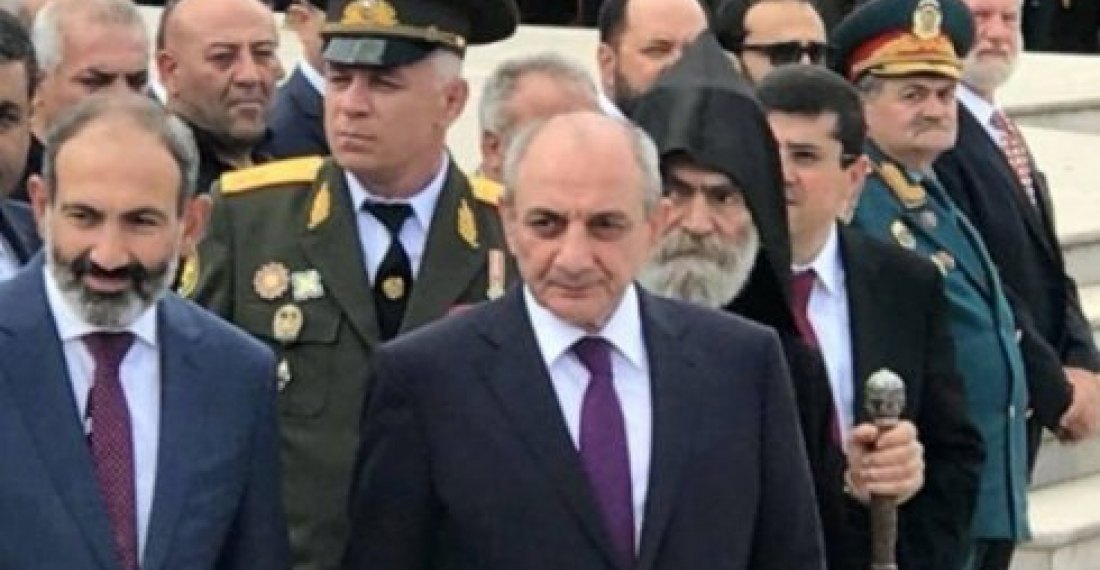Armenia's new prime minister, Nikol Pashinyan, travelled to Nagorno-Karabakh on Wednesday morning (9 May), the day after he assumed power in Yerevan.Together with Bako Sahakyan, the de facto head of the self-declared Nagorno-Karabakh Republic Pashinyan attended a commemoration ceremony in Stepanakert and laid flowers to the monument to the Armenian soldiers who fell in the Great Patriotic War (World War II) and in the Karabakh War.
Subsequently, Pashinyan and Sahakyan went to Shushi, a town which was taken over by Armenian forces 26 years ago.
Commonspace.eu political editor said in a comment that the Karabakh issue will be one of the most difficult issues the new prime minister will have to deal with.
"Armenia's first president Levon Ter Petrosyan was deposed in a palace coup in 1998, ostensibly for offering to make concessions in the negotiations on the Karabakh issue. Since then, and until yesterday, Armenia has been ruled by persons who originally hailed from Karabakh - Robert Kocharian and Serzh Sargsyan.
Pashinyan has so far signalled that he will not make any immediate changes to the current Armenian position on Karabakh, which is to continue negotiations in the framework of the OSCE Minsk process, and to continue to support the independence of Nagorno-Karabakh. He has even mentioned that Nagorno-Karabakh should be part of the negotiating process, something that Armenian diplomats have often asked for, but not insisted on, in the past.
For Pashinyan however Karabakh also has other risks closer to home. Because of its peculiar current status Karabakh can easily become a hotbed for anyone in opposition to the government in Yerevan. Over the last two decades this was not an issue since the leaders in Yerevan had roots in Karabakh, and the full support of the leadership there. Pashinyan does not have these credentials, and one needs to see what new dynamic will emerge in the relationship between Yerevan and Stepanakert.
Pashinyan seems to have moved swiftly to both reassure Stepanakert, as well assess the situation on the ground for himself."
source: commonspace.eu
photo: Nikol Pashinyan and Bako Sahakyan in Stepanakert on Victory Day, 9 May 2018.







